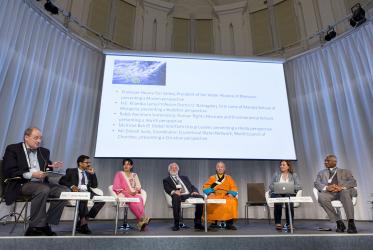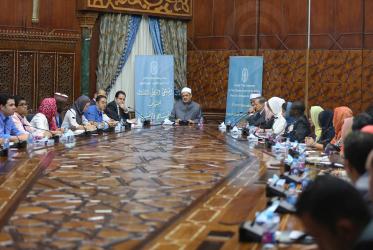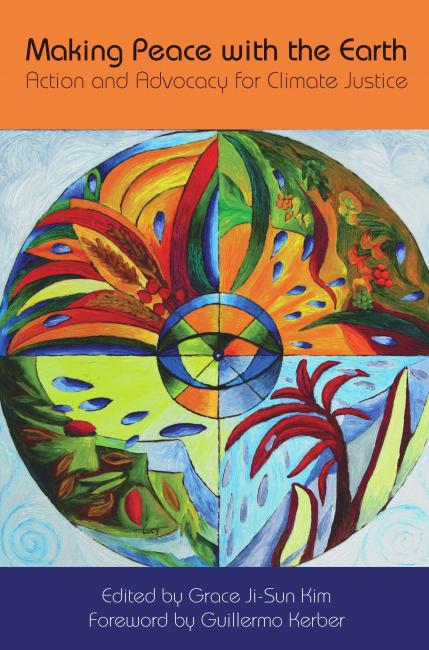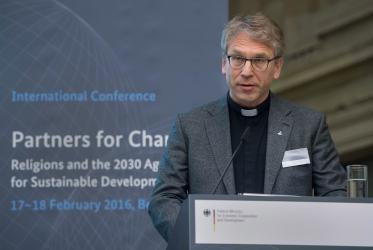Displaying 101 - 120 of 180
06 October 2016
Tveit offers input at religion and development meeting
03 October 2016
Seminar will address youth engagement, religion and violence
19 August 2016
In Ghana, women bring open minds, honest words
05 July 2016
WCC conference explores ecological injustice in Uganda
21 April 2016
Catholic-WCC group pursues new mandate
13 April 2016
WCC/UN conference calls for coordinated action on refugee crisis
20 January 2016
Taizé - Living Ecumenism
01 October 2015















